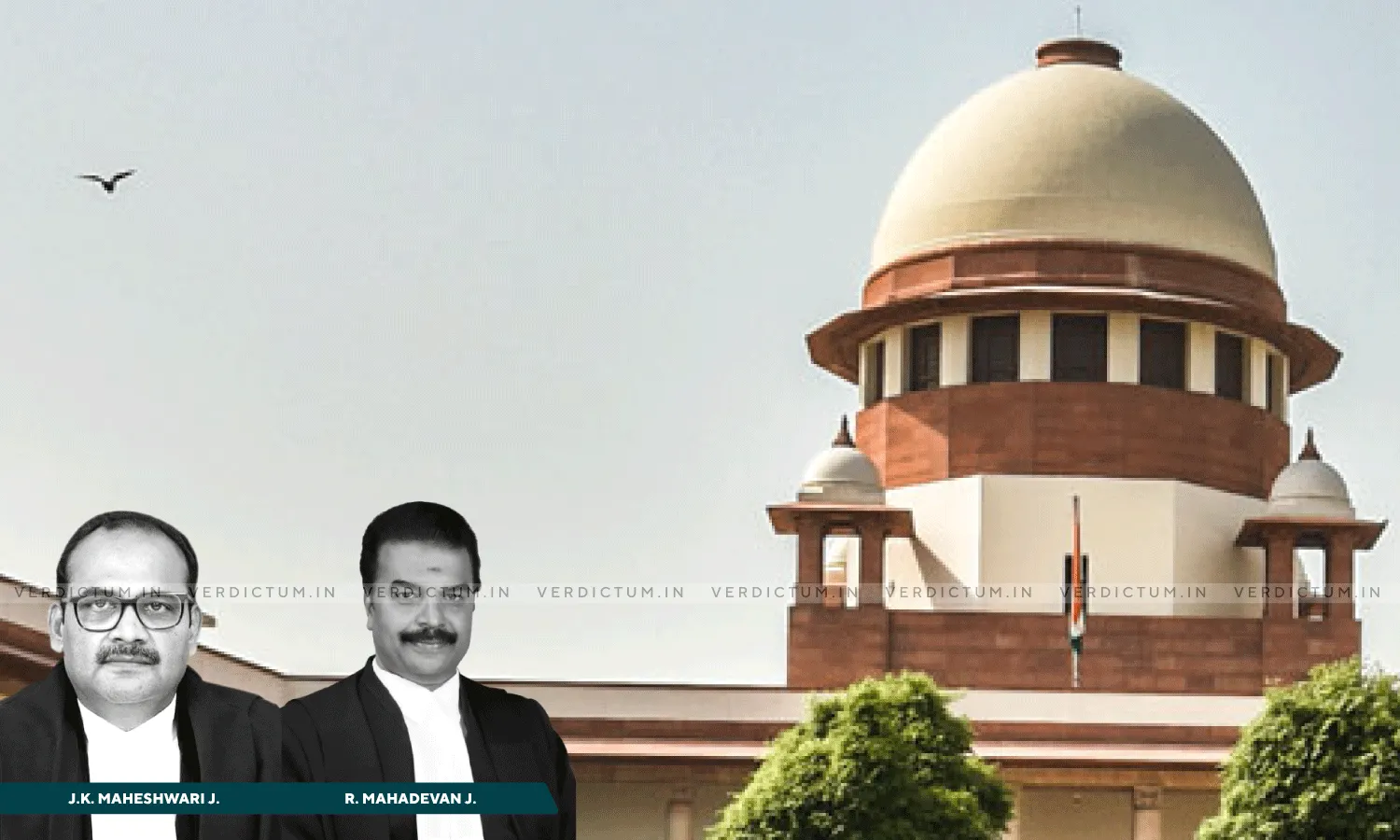Reasons Are Heartbeat Of Every Order; Show Cause Notice To Employees Must Specify Grounds On Which Authority Intends To Proceed: SC
The Supreme Court has held that a show cause notice to an employee must specify the grounds on which the administrative or quasi-judicial authority intends to proceed as reasons are the “heartbeat of every order.”
The Court set aside the order of the Calcutta High Court which had upheld the termination of the Appellant, an Ophthalmic Assistant in the Health Department of West Bengal. The Bench restored the decision of the West Bengal State Administrative Tribunal (Tribunal) which had held that the termination Order could not be sustained as it was done without following the principles of natural justice and without affording any opportunity to explain his case before the authority.
The Bench of Justice J.K. Maheshwari and Justice R. Mahadevan reiterated “Reasons are heartbeat of every order and every notice must specify the grounds on which the administrative or quasi-judicial authority intends to proceed; if any document is relied upon to form the basis of enquiry, such document must be furnished to the employee; it is only then a meaningful reply can be furnished; and the failure to furnish the documents referred and relied in the notice would vitiate the entire proceedings as being arbitrary and in violation of the principles of natural justice; and before taking any adverse decision, the aggrieved person must be given an opportunity of personal hearing.”
Advocate Raj Kumar Gupta represented the Appellant, while Senior Advocate Biswajit Deb appeared for the Respondents.
The Appellant, who migrated to India from East Pakistan (now Bangladesh) with his father in 1969, was appointed as an Ophthalmic Assistant by the Director of Health Services, West Bengal, in 1985. The appointment was based on satisfactory medical and police verification reports. It was alleged that after 25 years of unblemished service, a police verification report declared him unsuitable for employment, leading to his termination.
The Appellant challenged the termination before the Tribunal, which ruled in his favour. However, the High Court set aside the Tribunal’s order and upheld the termination, prompting the present appeal. It was argued that the Appellant was not informed of the reasons for being deemed “unsuitable” and was not provided with a copy of the police verification report.
The Supreme Court held that the Order of termination passed against the Appellant was “arbitrary illegal and violative of the principles of natural justice and it cannot be sustained.”
The Court referred to its decision in S. Govindaraju v. Karnataka State Road Transport Corporation (1986), wherein it was held, “Giving an opportunity of explanation would meet the bare minimal requirement of natural justice. Before the services of an employee are terminated, resulting in forfeiture of his right to be considered for employment, opportunity of explanation must be afforded to the employee concerned. The appellant was not afforded any opportunity of explanation before the issue of the impugned order; consequently the order is rendered null and void being inconsistent with the principles of natural justice.”
The Court noted that before passing the termination order, no opportunity of personal hearing was provided to the Appellant to defend his stand effectively.
The Bench observed that “every administrative or quasi-judicial order must contain the reasons. Such reasons go a long way in not only ensuring that the authority has applied his mind to the facts and the law, but also provide the grounds for the aggrieved party to assail the order in the manner known to law. In the absence of any reasons, it also possesses a difficulty for the judicial authorities to test the correctness of the order or in other words, exercise its power of judicial review.”
Consequently, the Court held, “However, the High Court erroneously allowed the writ petition filed by the State and set aside the order of the Tribunal by observing that the action of the authorities in issuing a show cause notice and inviting a reply therefrom and the availing of such opportunity by the appellant, is in adherence with the principles of natural justice. Hence, we are inclined to set aside the order of the High Court and restore the order of the Tribunal to that extent.”
Accordingly, the Supreme Court allowed the Appeal.
Cause Title: Basudev Dutta v. State of West Bengal & Ors. (Neutral Citation: 2024 INSC 940)
Appearance:
Appellant: Advocates Raj Kumar Gupta and Mayank Agrahari; AOR Shekhar Kumar
Respondents: Senior Advocate Biswajit Deb; Advocate Shwetank Singh; AOR Anando Mukherjee












